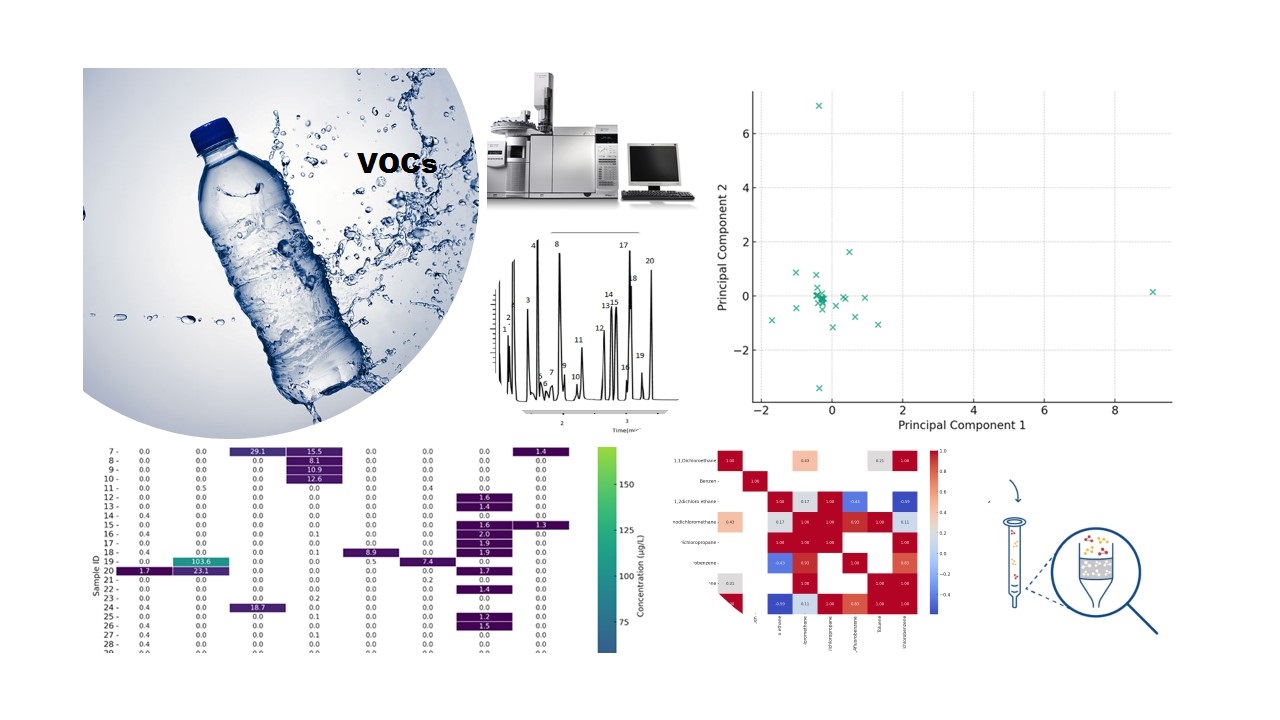- Cite article
- Download PDF
- Share article
- 15 Downloads
Bottled water is considered a safe water source and extensively consumed worldwide. However, increased health concerns about its contamination by organic pollutants and polymeric micro/nonfibrous particulates have arisen in the last few years. Therefore, this work is designed to screen the bottled water marketed in Saudi Arabia for the existence of volatile organic compounds (VOCs). For this purpose, 40 samples of bottled water from Madinah city’s markets were collected and analyzed to verify their containment of VOCs. The samples were preconcentrated using solid-phase extraction (SPE) and analyzed by gas chromatography techniques calibrated with an environmental standard mixture containing 26 VOCs. The results confirmed the presence of several volatile organic pollutants in some samples. These pollutants include: 1,1-dichloroethane (1,1DCE), Benzene (B), 1,2-dichloroethane (1,2DCE), Bromodichloromethane (BDCM), 1,2-dichloropropane (1,2DCP), 1,4-difluorobenzene (1,4FB), Toluene (T), and 1,4-dichlorobenzene (1,4DCB). Bromodichloromethane is one of the most common compounds found in bottled drinking water, detected in approximately 40% of the samples, followed by Toluene in 35% of the samples. The least frequently detected component in bottled drinking water was 1,2-dichloropropane, which was found in only 7.5% of the samples.
